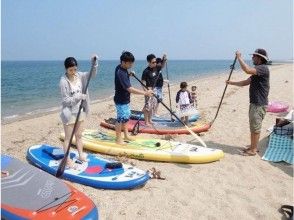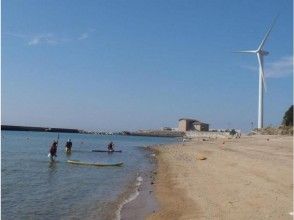[Sumoto, Hyogo] Why did the "Awaji Monkeys" become such a kind group of monkeys? Learn from the ecology of the "Awaji Monkeys" who chose a social style based on mutual help rather than force or conflict.
- Beginners welcome - First try
- Empty-hands OK
- Operate rain or shine
- Children welcome
-
Possible number of bookings1~1
-
Participating age0Age ~ 100 Age
-
Duration1~2 hours
Generally, Japanese macaques are said to be aggressive creatures that value hierarchy, with the boss monkey at the center. However, the wild Japanese macaques that come to the Awaji Monkey Center are seen to behave in a gentle manner, supporting weaker monkeys. These monkeys are called "Awaji Monkeys." This is a healing experience, where you can listen to the center staff talk about the ecology of the monkeys that live in a gentle society, learn about the Awaji monkeys, and feed and observe them. This is the only place where you can take a commemorative photo of yourself surrounded by monkeys! The Japanese macaques that come to the Awaji Island Monkey Center live in groups of about 350. These wild Japanese macaques come from the mountains around 9am, spend the day near the feeding area, and return to the mountains in the evening. The monkeys here are very docile and gentle, with a high level of tolerance, and this characteristic is very rare, so they are called "Awaji Monkeys." After listening to a talk by the staff who run the center about the characteristics of the Awaji monkeys and how to be the leader of this group, you need to be kind as well as strong, you can enter a building specifically for feeding and feed the monkeys outside, a unique feeding experience. (Additional fee: 200 yen per time) You can take a commemorative photo in the middle of a group of monkeys thanks to the feeding points of the center staff and the kindness of the Awaji monkeys, and you can't experience this unless you come here. If you scatter food in the shape of letters, the monkeys that eat the food will also form the letters, a unique sight that only the monkeys here can see. (A panel is posted on site) If you want to observe the Awaji monkeys to your heart's content, you can enter the park before the experience time.
Select your preferred day
- Immediate booking OK!
- Reception closed
- Not accepted
- Request booking
About fees
Basic fee
※The list price includes tax.
※The above price is a basic fee.
※Fees may vary depending on schedule, please check the fee displayed after selecting the date.
| Included in price | |
|---|---|
| Not included in price |
| Payment methods |
|
|---|---|
| Display of the Specified Commercial Transactions Act | Display of the Specified Commercial Transactions Act |
| Reservation cancellation fee generation date | Cancellation fee will be charged from 10 days before the event date. |
| About cancellation | Please note that the following cancellation fees will be charged in the event of cancellation due to customer convenience. 10 to 8 days before: 20% 7 to 2 days before: 30% The day before: 40% On the day: 100% Cancellation without permission: 100% |
| About event termination |
Detailed information of this plan
| Required minimum number of participants | 2 Person(s) |
|---|---|
| Possible number of bookings | 1~1 |
| About duration |
1~2 hours
About 1 hour and 45 minutes
|
| Operating period | All-year-round |
| Assembly time | Please come at the appointed time. |
| Booking deadline | until 23:59 10 days before |
| Changing room | Toilet | ||
|---|---|---|---|
| Shower | Parking | ||
| Locker |
| Dress code - Must bring items | Comfortable clothes and shoes (the feeding area at the Monkey Center is paved, but it is on the side of a mountain), and a camera (if you want to take photos with the monkeys) |
|---|
| Matters require attention | ・Please pay the admission fee and experience fee for the number of people in cash at the Awajishima Monkey Center admission ticket booth. ・You can enter the Awajishima Monkey Center before the experience time and observe freely (from 9:30). ・Do not touch the monkeys. ・Do not get too close to the monkeys. ・Peeking at them is dangerous. ・Do not hand twigs or stones to the monkeys. ・Do not run or shout in the park. ・You cannot bring food. ・Pets are not allowed in the park. ・Customers are prohibited from live streaming on YouTube, Instagram, etc. in the park. ・Please ask us if you would like to take photos with a single-lens reflex camera. ・Tripods and selfie sticks are prohibited. ・Wheelchairs are difficult to access due to the steep slope to the feeding area. ・Because these are wild monkeys, depending on the weather and the season, there are cases where the monkeys do not come to the center. |
|---|
Access - Map
Awajishima Monkey Center
●From Kobe: Seidan Mihara IC - National Route 28 - Aman - Nada (40 minutes) Sumoto IC - National Route 28 - Sumoto - Yura - Nada (45 minutes) ●From Tokushima: Seidan Mihara IC - National Route 28 - Aman - Nada (40 minutes) Awajishima Minami IC - National Route 28 - Aman - Nada (55 minutes)
[If coming by bus] From Sumoto Bus Center, there is a community bus. From Sumoto Bus Center, in front of Monkey Center
All reviews 0Results
Q&A about this plan Ask question about this plan
Activity Provider of this plan
| Authorization issued by | Governor of Hyogo Prefecture, Type 3 Travel Agency |
|---|---|
| Insurance information | Tokio Marine & Nichido Fire Insurance, Domestic Travel Accident Insurance, Death and Persistent Disability 5 million yen, Hospitalization 3,000 yen, Medical Treatment 2,000 yen, Liability 10 million yen |
| License and Qualifications | Minami Awaji City certified tourist guide, etc. |
![[Sumoto, Hyogo] Why did the "Awaji Monkeys" become such a kind group of monkeys? Learn from the ecology of the "Awaji Monkeys" who chose a social style based on mutual help rather than force or conflict.の紹介画像](https://img.activityjapan.com/10/58780/10000005878001_1Gz5AIDf_4.webp?version=1744773842)
![[Sumoto, Hyogo] Why did the "Awaji Monkeys" become such a kind group of monkeys? Learn from the ecology of the "Awaji Monkeys" who chose a social style based on mutual help rather than force or conflict.の紹介画像](https://img.activityjapan.com/11/58780/11000005878002_1Gz5AIDf_4.webp?version=1744773842)
![[Sumoto, Hyogo] Why did the "Awaji Monkeys" become such a kind group of monkeys? Learn from the ecology of the "Awaji Monkeys" who chose a social style based on mutual help rather than force or conflict.の紹介画像](https://img.activityjapan.com/11/58780/11000005878003_1Gz5AIDf_4.png?version=1744773846)
![[Sumoto, Hyogo] Why did the "Awaji Monkeys" become such a kind group of monkeys? Learn from the ecology of the "Awaji Monkeys" who chose a social style based on mutual help rather than force or conflict.の紹介画像](https://img.activityjapan.com/11/58780/11000005878004_1Gz5AIDf_4.webp?version=1744773846)
![[Sumoto, Hyogo] Why did the "Awaji Monkeys" become such a kind group of monkeys? Learn from the ecology of the "Awaji Monkeys" who chose a social style based on mutual help rather than force or conflict.の紹介画像](https://img.activityjapan.com/11/58780/11000005878005_1Gz5AIDf_4.webp?version=1744773846)
![[Sumoto, Hyogo] Why did the "Awaji Monkeys" become such a kind group of monkeys? Learn from the ecology of the "Awaji Monkeys" who chose a social style based on mutual help rather than force or conflict.の紹介画像](https://img.activityjapan.com/11/58780/11000005878006_1Gz5AIDf_4.jpg?version=1744773846)
![[Hyogo, Sumoto] Experience something out of the ordinary at Senkoji Temple, located on Sakiyama, which is said to be the first mountain to be created in Japan in the "creation mythology" <copying sutras experience>](https://img.activityjapan.com/10/58443/10000005844301_1Gz5AIDf_2.webp?version=1743129423)
![[Hyogo, Minami Awaji] Limited to one group (1-3 people) per day! A one-day course where you can enjoy Awaji Ningyo Joruri, guided by a current member of the troupe! A tour of Ebisu Shrine in a chartered taxi](https://img.activityjapan.com/10/58662/10000005866201_1Gz5AIDf_2.webp?version=1750746542)
![[Hyogo, Minami Awaji] Limited to one group (4-8 people) per day! Guided by an active puppeteer of Awaji Puppet Theater! A 3-hour tour in a chartered taxi around the areas associated with the Awaji Puppet Theater](https://img.activityjapan.com/10/58664/10000005866401_1Gz5AIDf_2.webp?version=1744344607)
![[Hyogo, Minami Awaji] Limited to one group (1-3 people) per day! Guided by an active puppeteer of Awaji Puppet Theater! A 3-hour tour in a chartered taxi around the areas associated with the show](https://img.activityjapan.com/10/58663/10000005866301_1Gz5AIDf_2.webp?version=1744343049)
![[Hyogo, Minami Awaji] Experience Zen meditation and appreciating the Nanga paintings of Gyokusei Jikihara at a Zen temple associated with the master of Nanga painting who grew up on Awaji Island.](https://img.activityjapan.com/10/58500/10000005850001_1Gz5AIDf_2.webp?version=1743403386)
![[Hyogo, Minami Awaji] Try your hand at making onigawara tiles, a tradition that has continued for over 400 years! Learn from a master craftsman, the oni-shi](https://img.activityjapan.com/10/58778/10000005877801_1Gz5AIDf_2.webp?version=1744699742)
![[Hyogo, Minami Awaji] Awaji tiles, a traditional industry with 400 years of history. A tile maker who continues to challenge himself to create the beauty of Japanese architecture. A coaster-making experience.](https://img.activityjapan.com/10/58552/10000005855201_1Gz5AIDf_2.webp?version=1743738427)
![[Hyogo, Minami Awaji] 400 years of history! Japan's three major tile production areas: Onigawara craftsmen on Awaji Island: Experience the craftsmanship of Onishi up close and see the manufacturing process! Awaji tile kiln tour experience](https://img.activityjapan.com/10/58514/10000005851401_1Gz5AIDf_2.webp?version=1743490147)
![[Hyogo/Awaji] Learn all about fragrances and then make your favorite scented sachet at an incense manufacturer that preserves traditional handmade manufacturing.](https://img.activityjapan.com/10/58819/10000005881901_nXyAW2Zv_2.png?version=1744872913)
![[Awaji, Hyogo] Learn about the history and basics of fragrance from a fragrance master in this town of incense that has been around since the Edo period, and create your own original incense by choosing the scent and shape.](https://img.activityjapan.com/10/58859/10000005885901_nXyAW2Zv_2.png?version=1745203267)
![[Hyogo, Awajishima] Japan's largest marine athletics! 2025 Frolic Sea Adventure Park Awajishima will be upgraded even further!](https://img.activityjapan.com/10/59037/10000005903701_6glI3R89_2.png?version=1746261869)
![[Hyogo / Awaji Island] Play in the sea on Awaji Island! Let's do SUP in Keino Matsubara! If you row on the board, it's a different space. With a guide accompanying photo shoot ♪](https://img.activityjapan.com/10/37064/10000003706401_FSQHK4Yx_2.jpg?version=1742539622)


![[Hyogo, Minami Awaji City] Awaji Tile Story: Feel like a "demon maker"! A mini onigawara making experience where you can make your own original onigawara.](https://img.activityjapan.com/10/62350/10000006235001_IKjzps1A_2.jpg?version=1768722963)
![[Minami Awaji City, Hyogo] These popular commemorative tiles are made using genuine clay from Awaji Island and feature a commemorative handprint.](https://img.activityjapan.com/10/62349/10000006234901_R6fls3zb_2.jpg?version=1768720203)
![[Minami Awaji City, Hyogo] Make pot covers and lampshades using genuine cylindrical tile clay from Awaji Island.](https://img.activityjapan.com/10/62348/10000006234801_R6fls3zb_2.jpg?version=1768721822)
![[Minami Awaji City, Hyogo] We will make pot covers and lampshades using genuine ridge tile clay from Awaji Island.](https://img.activityjapan.com/10/62347/10000006234701_R6fls3zb_2.jpg?version=1768715883)